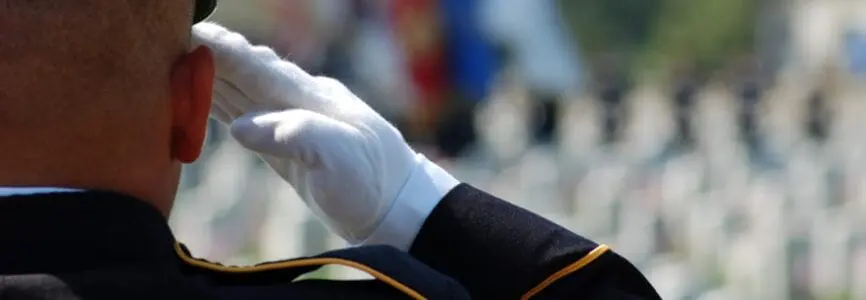Bioethics Forum Essay
U.S. Military Medical Ethics Guidelines in Limbo
As President Barack Obama’s term comes to a conclusion, various initiatives started under his administration remain unfinished. One of these, the adoption of the recommendations of the Defense Health Board (DHB), “Ethical Guidelines and Practices for U.S. Military Medical Professionals,” is of utmost importance to health care professionals in our military.
Health care providers in the United States are bound by the Hippocratic Oath, medical ethics, respect for human rights, international declarations, Geneva Conventions, the Nuremburg Code, and the United Nations Universal Declaration of Human Rights. The Declaration of Human Rights states, “No one shall be subjected to torture or to cruel, inhuman, or degrading treatment or punishment.” Medical ethics embodies these historical documents and calls upon health care providers to do no harm to patients, obtain their consent, not violate their bodily integrity, and recognize their vulnerability. These principles apply to patients in civilian or military settings including the care of detainees and prisoners.
After 9/11, conflicts arose between these ethical standards and the duties of health care personnel. These conflicts needed to be settled within a framework that respects the codes of ethical and professional conduct. The DHB report is a response to that overwhelming need.
Senator Diane Feinstein, vice chair of the Senate Intelligence Committee, has written to Secretary of Defense Ashton Carter urging the adoption of the recommendations. Support has also come from prominent bioethicists and human rights advocates. The World Medical Association, American Medical Association, American Nurses Association, and the American Psychiatric Association (APA) are among the many groups that have condemned the participation of health care providers in interrogation, torture, or force-feeding.
The urgency of the adoption and promulgation of the report before the end of the current administration’s term is essential. Our military health care personnel face numerous challenges, working under the most difficult conditions, as they care for combatants, prisoners, and detainees. Complying with the ethical standards of the profession, as well as the oath of office to obey lawful orders, can present challenges under trying circumstances. These physicians, nurses, psychologists, psychiatrists, medics, and allied health professionals balance what can be conflicting demands of professional and military standards with potentially grave consequences to their careers and lives.
Currently, health care providers have few choices when faced with moral dilemmas arising from their participation in these duties. They can obey orders that would be considered unethical by universally accepted standards (as well as those standards set forth by their professional organizations) or face the consequences: administrative hearings or court marshals which could result in dismissal, imprisonment, or dishonorable discharge. These health care providers can also suffer a loss of career with substantial financial and social ramifications should they choose to resist such participation. Psychological injuries can also result from participation in activities that one deems to be immoral.
The DHB report, issued a year ago, addresses these concerns with 16 recommendations. Three of them are broad, far-reaching statements that are intended to alleviate some of the moral strain on these personnel.
Recommendation 2, states, “Throughout its policies, guidance, and instructions, DoD must ensure that the military health care professional’s first obligation is to the patient.” The recommendation preserves the autonomy of health care providers in their treatment of patients regardless of whether the patients are service personnel, detainees, or prisoners.
Recommendation 3 reads, in part, that the Department of Defense “should excuse health care professionals from performing medical procedures that violate their professional code of ethics” and “the core tenets of their religious or moral beliefs.”
Recommendation 7 states, “DoD should provide military health care professionals with privileges similar to those of Chaplains and Judge Advocates regarding their independence and obligation to protect privacy and confidentiality while meeting the requirements of line commanders.”
Additional recommendations include the establishment of a Department of Defense infrastructure for training and education as well as consultation on military medical ethics.
Long before the DHB report was issued, a Navy nurse (a lieutenant with 18 years in the Navy) on duty at Guantanamo Bay prison refused to participate in force feeding of detainees. The nurse faced an administrative hearing and a possible dishonorable discharge. If the DHB recommendations had been in place, the nurse would have been excused from performing the procedure. After the DHB issued the report, the Navy nurse was returned to duty without further action.
Health care professionals should have the freedom to follow their conscience and their professional association’s code of ethics during their service in the military. The DHB report will not only ensure the moral comfort of our medical service personnel, it also stands as a moral document that can frame our moral intent as we go forward into turbulent times.
Adil Shamoo, PhD, a biochemistry professor at the University of Maryland’s School of Medicine, is the chair of the Defense Health Board’s medical ethics subcommittee, which wrote “Ethical Guidelines and Practices for U.S. Military Medical Professionals,” the report approved by DHB. The views expressed here are solely those of the author and do not represent those of the DHB, medical ethics subcommittee, or any of its members.













